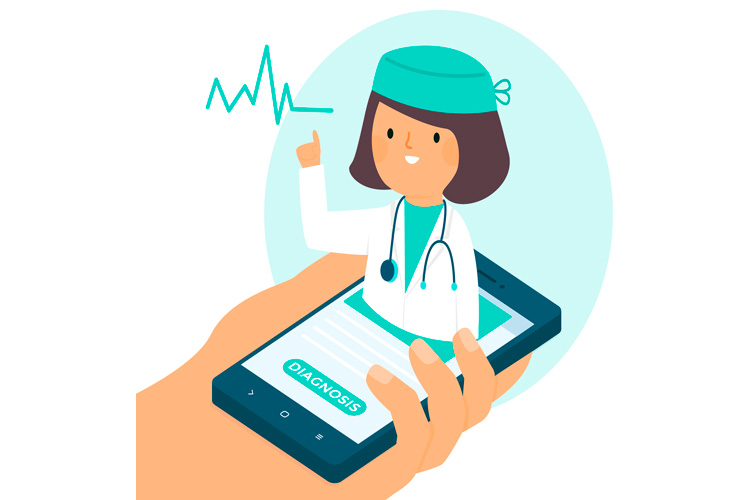26 June 2024 |
Digital Health: New Frontiers of Medicine
Digital health is transforming healthcare. Wearables have been monitoring our health for some time now, and telemedicine has been decisive in the management of diseases such as type 1 diabetes. However, now, thanks to the use of totally innovative technologies, the advances are revolutionary and the expectations in the medicine of the future are higher than ever.
In this reinvention of medicine, the applications of Artificial Intelligence (AI) stand out. One of the most promising developments is the use of AI for the early detection of diseases. Advanced algorithms analyze medical images with accuracy comparable to that of human radiologists, speeding up diagnosis and reducing the margin of error. This makes it possible to intervene in earlier stages of the disease, which allows for faster and more effective treatments. For example, companies like Aidoc are developing algorithms that identify early signs of diseases such as strokes and pulmonary embolisms from CT scans.
In the absence of initial markers or symptoms, a complementary approach is risk prediction. Using Big Data and Artificial Intelligence, the patient's medical history and health parameters such as blood pressure and cholesterol levels are analyzed, to assess the risk of a stroke before it occurs.
AI and Big Data also work in tandem to facilitate more personalized medical treatments. By analyzing large volumes of clinical and genomic data, AI algorithms identify patterns and predict which therapies will be most effective for each patient. The result is unbeatable: the patient's health wins, with minimal side effects, while optimizing the use of medical and hospital resources.
In telemedicine, AI makes all the difference. When your doctor visits remotely, virtual assistants help diagnose and plan treatment. Advanced algorithms, machine learning, and the ability to analyze mountains of data from AI make up for the lack of a specialized doctor on-site.
In addition to AI and Big Data, these other technologies will define the medicine of the future:
- Blockchain: secure and transparent platforms for managing and sharing medical data.
- 3D printing: creation of personalized prostheses, anatomical models for surgical planning, and printed human tissues.
- Virtual Reality (VR) and Augmented Reality (AR): used for medical training, surgical simulations and rehabilitation therapies.


